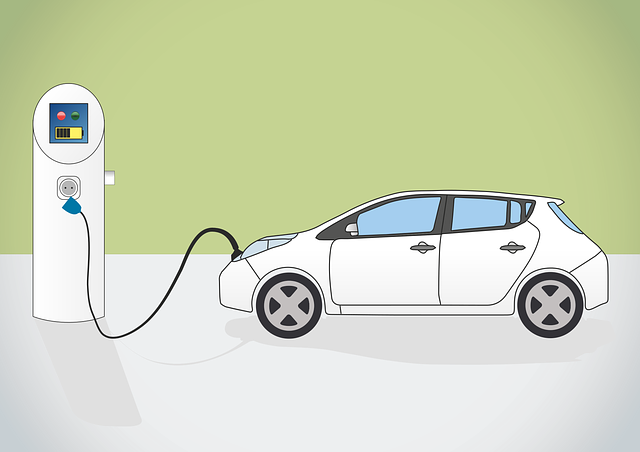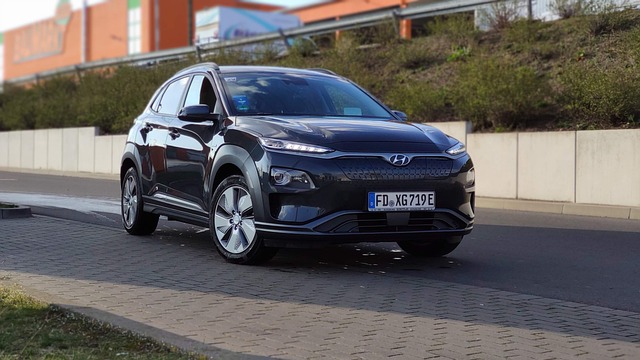Government incentives like tax credits and rebates promote Electric Vehicles (EVs), making them more affordable. These programs encourage urban commuting and low-maintenance solutions, contributing to environmental sustainability. Select Electric Vehicles (SEVs) gain popularity due to environmental benefits and cost savings from incentives like leasing options and school bus programs. Global cities like Amsterdam and Oslo lead in SEV adoption through support, infrastructure investments, and battery durability. Future incentives will focus on expanding charging infrastructure, reducing costs, and addressing range anxiety.
“Unleash savings with government incentives designed to promote sustainable transportation! Discover how Select Electric Vehicles (EVs) offer not just environmental benefits but also significant financial gains. This comprehensive guide explores various aspects of governmental support for EVs, including tax credits, rebates, and local programs. Learn about the advantages of transitioning to electric cars, successful adoption cases, and future trends shaping the EV landscape.”
- Understanding Government Incentives for EVs
- Benefits of Choosing Electric Cars
- Tax Credits and Rebates Explained
- Local Programs Promoting Sustainable Transport
- Case Studies: Successful EV Adoption
- Future Trends in Government Support for EVs
Understanding Government Incentives for EVs

Government incentives play a pivotal role in promoting the adoption of Electric Vehicles (EVs), providing financial rewards and benefits to encourage consumers to make the switch. These incentives are designed to offset the initial higher cost of EVs, making them more affordable and attractive to potential buyers. When it comes to understanding government incentives for EVs, one key area to focus on is the support for select electric vehicles, often tailored to specific needs like urban commuting or offering low maintenance solutions.
Many governments worldwide offer tax credits, rebates, and reduced registration fees to promote sustainable transportation choices. These incentives not only benefit individual consumers but also contribute to wider environmental goals by encouraging a shift towards zero-emission transportation options. For instance, some programs target businesses and fleets, incentivizing them to adopt EVs, thereby increasing the overall number of low maintenance electric cars on the road.
Benefits of Choosing Electric Cars

Choosing electric cars comes with a plethora of benefits that make them an increasingly attractive option for consumers. Firstly, electric vehicles (EVs) are environmentally friendly, producing zero tailpipe emissions, which significantly reduces greenhouse gas emissions and contributes to cleaner air. This shift towards sustainability is not just beneficial for the planet but also encourages a greener future for generations to come.
Additionally, selecting electric vehicles can lead to substantial savings through various government incentives. Many regions offer affordable electric car leasing options, making EVs more accessible and cost-effective. The availability of electric school bus programs further highlights this trend, demonstrating a commitment to promoting clean transportation in educational settings. Moreover, electric vehicle tax credits available from select governments can dramatically reduce the overall purchase price, making the switch even more appealing for both individual drivers and fleet operators.
Tax Credits and Rebates Explained

Many governments around the world are promoting the adoption of energy efficient vehicles for daily use by offering tax credits and rebates. These incentives are designed to make select electric vehicles (EVs) more affordable for consumers, encouraging them to switch from traditional gasoline-powered cars. By taking advantage of these financial benefits, buyers can significantly reduce the upfront cost of purchasing an EV, making it a viable option for daily commuting and long-distance travel.
The rebates and credits often vary depending on the region and specific policies in place. For instance, some governments offer direct cash rebates based on the type and efficiency of the electric vehicle. Others provide tax credits that lower the amount of income tax owed when purchasing an EV. These incentives not only support individuals’ efforts to reduce their carbon footprint but also contribute to the longevity of electric vehicle batteries by encouraging a shift towards green energy vehicle options.
Local Programs Promoting Sustainable Transport

Many cities and regions are implementing local programs to promote sustainable transport, with a particular focus on encouraging the adoption of Select Electric Vehicles (SEVs). These initiatives aim to reduce carbon emissions and improve air quality by transitioning from traditional gasoline-powered vehicles to energy-efficient alternatives. Governments offer incentives such as tax credits, rebates, and reduced registration fees to make SEVs more affordable for consumers.
Additionally, local authorities are electrifying public transportation networks, including buses and taxis, to lower emissions and create a greener urban environment. This shift towards sustainable commercial vehicle rentals is also gaining momentum, with businesses recognizing the environmental and economic benefits of reducing their carbon footprint through electric fleets. As a result, more people are embracing SEVs for daily use, contributing to a growing movement towards cleaner, more eco-conscious mobility options.
Case Studies: Successful EV Adoption

In recent years, several cities around the globe have successfully adopted Select Electric Vehicles (SEVs) as part of their efforts to transition towards more sustainable and eco-friendly alternatives to gas-powered vehicles. One notable example is Amsterdam, Netherlands, where the city has seen a significant increase in EV adoption due to supportive government policies and initiatives. The Dutch capital has invested heavily in electrifying public transportation networks, including buses and taxis, making it easier for residents and tourists alike to make environmentally conscious choices.
Another successful case study is the city of Oslo, Norway. Known for its ambitious climate goals, Oslo has incentivized EV ownership through various measures, such as reduced registration fees, free parking in city centers, and tax exemptions. As a result, the city boasts one of the highest rates of EV adoption worldwide. Furthermore, the longevity of electric vehicle (EV) batteries has been a key factor in these success stories, addressing a common concern among potential EV buyers and contributing to the overall viability and desirability of SEVs.
Future Trends in Government Support for EVs

The future of government incentives for electric vehicles (EVs) looks bright, with a growing emphasis on sustainable and environmentally friendly transportation. As global efforts to combat climate change intensify, governments worldwide are recognizing the significant role that EVs play in reducing carbon emissions. In recent years, we’ve seen an increase in direct financial incentives, tax credits, and grants to promote the adoption of select electric vehicles. This trend is expected to continue, with many countries setting ambitious targets to phase out internal combustion engines entirely by mid-century.
Looking ahead, future government support for EVs will likely focus on expanding charging infrastructure, further reducing EV purchase costs, and addressing range anxiety, especially in colder climates. With advancements in battery technology, electric cars with excellent range and performance are becoming more prevalent, making them a viable option even for regions known for harsh winters. Best electric vehicles for winter driving are now better equipped to handle cold temperatures and snow, thanks to improved heating systems and efficient all-wheel-drive configurations, ensuring a smooth and enjoyable experience for drivers embracing this sustainable transportation method.
Government incentives play a pivotal role in encouraging the adoption of electric vehicles (EVs), offering significant savings and promoting sustainable transportation. By understanding these incentives, consumers can make informed choices while local programs provide further support. The benefits of EVs are clear, and with ongoing advancements, the future looks bright for widespread EV integration. Choosing a select electric vehicle (EV) today not only saves money but also contributes to a greener planet, thanks to these supportive government initiatives.
